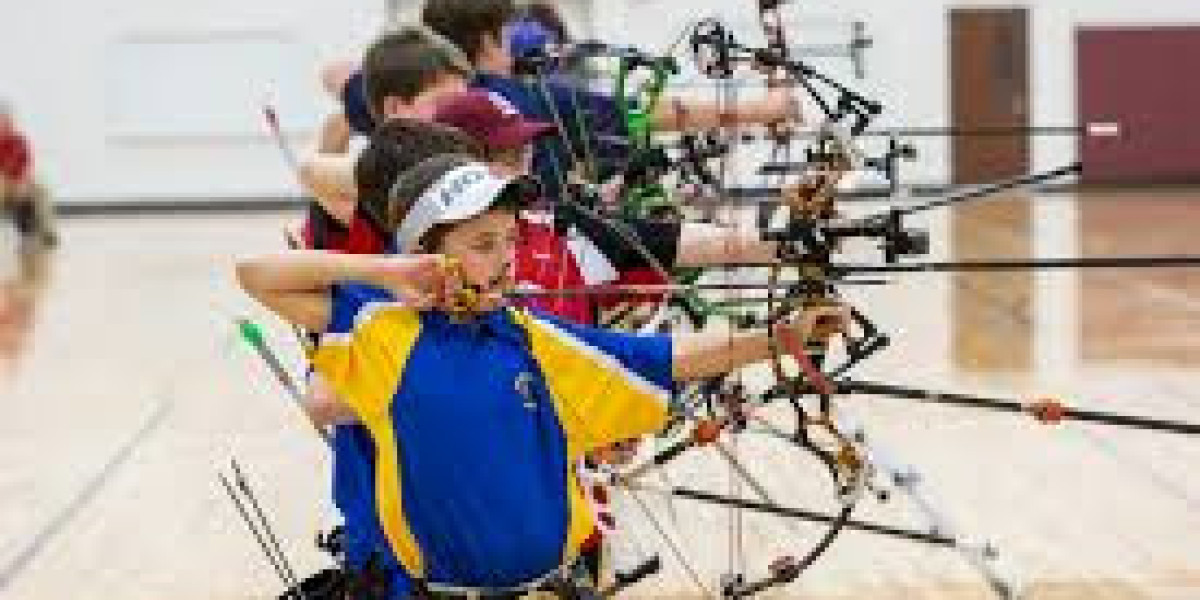youth archery programs are doing more than teaching kids how to aim and shoot—they are shaping responsible young individuals. By learning to handle equipment safely, follow rules, and respect teammates and instructors, participants develop habits that extend beyond the range. Local clubs, schools, and community organizations provide structured programs where children can gain these important life skills while enjoying the sport of archery.
The Importance of Responsibility in Youth Sports
Responsibility is a key skill for children to learn, and sports are an excellent environment to practice it. Archery, in particular, demands careful attention to safety and proper technique. Instructors emphasize that every action, from nocking an arrow to aiming and shooting, must be deliberate and controlled. Through this process, young archers gradually understand the importance of personal accountability.
Youth archery programs teach responsibility in multiple ways. Participants are expected to care for equipment, respect range rules, and consider the safety of others. These expectations create a structured environment where children learn that their choices have consequences, reinforcing positive behavior both on and off the range.
Safety as a Foundation
Safety is the cornerstone of any youth archery program. Coaches begin by explaining the proper handling of bows and arrows, the importance of wearing protective gear, and how to observe others while they shoot. By practicing safe habits consistently, children internalize the idea that responsibility starts with attention to detail and awareness of their surroundings.
Proper safety instruction not only prevents accidents but also builds confidence. Young archers feel more capable when they know how to follow rules and protect themselves and others. This confidence often carries over into other areas of life, promoting self-assurance and careful decision-making.
Developing Focus and Self-Discipline
Archery requires focus and patience. Learning to draw, aim, and release accurately takes practice, and young participants must maintain concentration throughout. Coaches incorporate exercises that improve attention span and self-discipline, such as visualization techniques and mindful breathing.
This combination of physical and mental training teaches children to stay present, work toward goals methodically, and persevere through challenges. Over time, these habits become second nature, reinforcing the sense of responsibility that youth archery programs aim to instill.
Structured Practice and Accountability
Youth archery programs often follow structured routines to promote accountability. Participants are responsible for showing up on time, preparing equipment, and completing assigned exercises. Instructors encourage children to reflect on their performance, noting areas for improvement and celebrating progress.
Structured practice helps young archers understand that consistent effort produces results. By tracking their own growth and being accountable for their participation, children learn that success requires responsibility and dedication.
Mentorship and Positive Role Models
Many archery programs include mentorship components. Experienced archers and coaches model responsible behavior, demonstrating proper technique, safety practices, and sportsmanship. Young participants learn from observing these examples and applying the same principles in their own practice.
Mentorship also provides emotional support. Coaches guide children in handling mistakes, managing frustration, and maintaining focus, showing that responsibility includes both self-discipline and perseverance in the face of setbacks.
Community Involvement
Local clubs and organizations play a key role in teaching responsibility. Parents, volunteers, and community members often assist with practice sessions, tournaments, and workshops. Their involvement reinforces the idea that youth archery programs are collaborative spaces where every participant has a role to play.
Community support also highlights accountability beyond the individual level. Children learn that their actions affect others and that contributing positively to a group is an important aspect of responsibility.
Competitions and Lessons Learned
Participation in tournaments and competitions provides practical experience in responsibility. Young archers learn to follow rules, manage time, and prepare thoroughly for events. They also discover how to handle pressure and setbacks gracefully.
Through competition, children gain perspective on their abilities and understand that preparation and self-discipline directly influence outcomes. These lessons are essential for personal growth and reinforce the values taught in youth archery programs.
Equipment Care and Respect
Taking care of equipment is another important aspect of responsibility. Participants are expected to maintain bows, arrows, and protective gear properly. This attention to detail encourages respect for the tools they use and reinforces the broader lesson that careful management leads to success.
Young archers learn that neglecting responsibilities can lead to mistakes, accidents, or missed opportunities. This understanding fosters maturity and accountability in both the sport and everyday life.
Long-Term Benefits
The responsibility learned through youth archery programs extends far beyond the range. Participants often demonstrate improved focus, self-discipline, and organizational skills in school and other activities. The sport provides a foundation for personal growth, helping children develop into reliable and conscientious individuals.
By promoting safety, accountability, and thoughtful decision-making, youth archery programs help cultivate a generation of young people who are capable, responsible, and confident.
Frequently Asked Questions
What ages can join youth archery programs?
Programs usually welcome children as young as six or seven, with age-appropriate instruction.
Are youth archery programs safe?
Yes, safety is a primary focus, and programs provide thorough supervision and training.
Do participants need their own equipment?
Many clubs provide equipment for beginners, though advanced archers may use personal gear.
How do programs teach responsibility?
Through safety training, structured practice, mentorship, and competition, children learn accountability and self-discipline.
Can archery help with skills outside the sport?
Yes, archery promotes focus, patience, and organization, which benefit schoolwork and other activities.
Conclusion
youth archery programs are more than just a sport—they are a way to teach responsibility, focus, and self-discipline. By learning to handle equipment safely, follow rules, and reflect on performance, young archers develop habits that extend into everyday life. Mentorship, structured practice, and community involvement reinforce these lessons, creating an environment where children grow into capable and conscientious individuals. Through archery, the next generation learns the value of responsibility and the importance of personal accountability.















